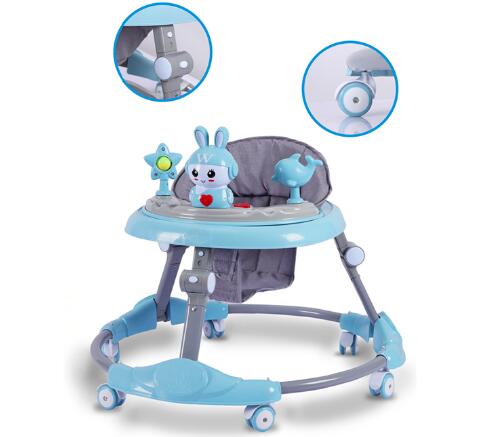Are baby walkers good for babies?
Baby walkers have been a subject of debate among pediatricians and child development experts for many years. Whether baby walkers are good for babies or not depends on various factors, and it's important to consider both the potential benefits and risks:
Potential Benefits:
Entertainment: Baby walkers can provide entertainment and amusement for babies. They often have toys and activities attached to the tray, which can keep a baby occupied and engaged.
Mobility: Walkers can allow a baby to move around before they can walk independently. This can give them a sense of freedom and exploration.
Exercise: Some parents find that baby walkers encourage their babies to use their leg muscles, which may help with strengthening their legs.
Potential Risks:
Safety Hazards: Baby walkers can pose significant safety risks. Babies in walkers can move at a much faster pace than they can when crawling, which can lead to accidents, such as falls down stairs, tipping over, or colliding with objects.
Delayed Motor Skills: There is evidence to suggest that the use of walkers can delay a baby's development of certain motor skills, including crawling and walking. This delay may be due to the unnatural way in which a baby moves in a walker.

Less Supervision: Parents may be more likely to leave their baby unattended when using a walker, assuming the baby is safe. This lack of supervision can lead to accidents.
Developmental Concerns: Some experts are concerned that babies who spend too much time in walkers may miss out on important developmental experiences, such as exploring their environment from the floor, which can aid in developing balance and coordination.
Muscle and Bone Development: Prolonged use of walkers can lead to uneven muscle development in a baby's legs and may affect the development of their hip joints.
Emotional Development: Walkers can limit a baby's interaction with caregivers and restrict their ability to explore their surroundings through touch and sensory experiences.
Due to these potential risks, many pediatricians and child safety organizations recommend against the use of baby walkers. In fact, certain countries have banned or restricted the sale of baby walkers due to safety concerns.
If parents decide to use a baby walker, it's crucial to follow safety guidelines, including never leaving the baby unattended in the walker, using it only on flat and hazard-free surfaces, and limiting the amount of time the baby spends in the walker. Additionally, it's essential to consider other alternatives for keeping a baby entertained and helping them develop their motor skills, such as supervised tummy time, activity mats, and age-appropriate toys. Consulting with a pediatrician for guidance on your specific situation is also advisable. Ultimately, the decision to use a baby walker should prioritize safety and a baby's overall development.

